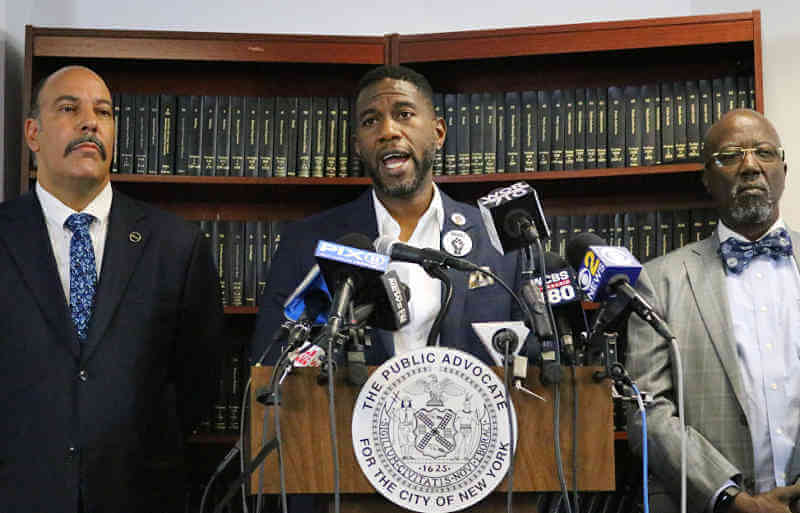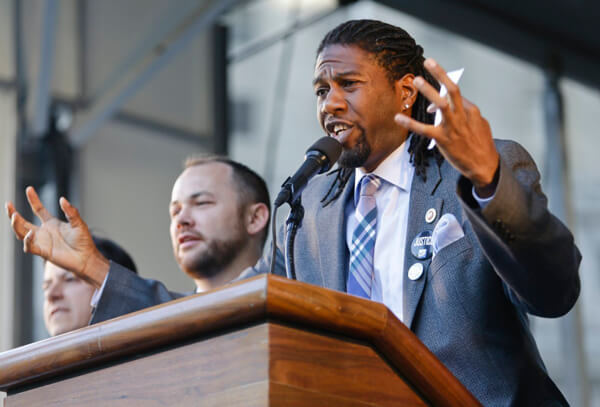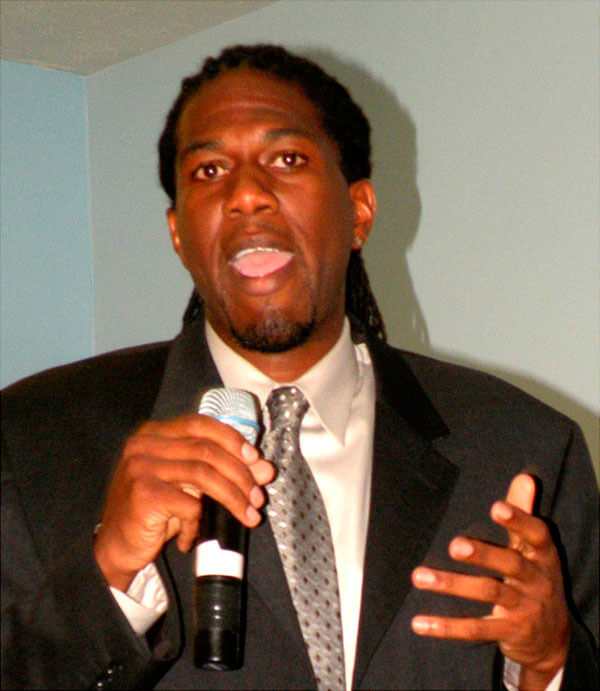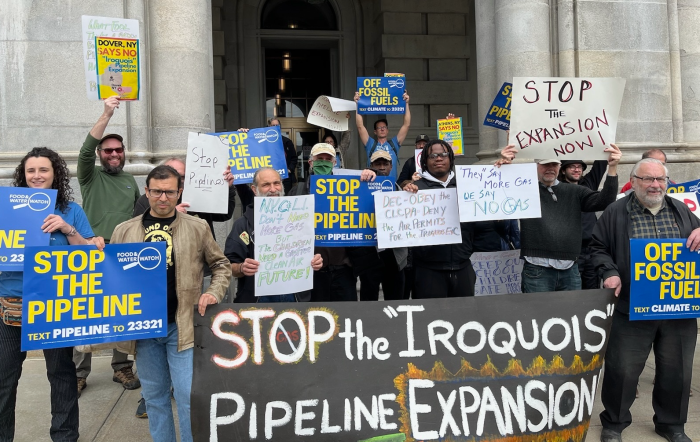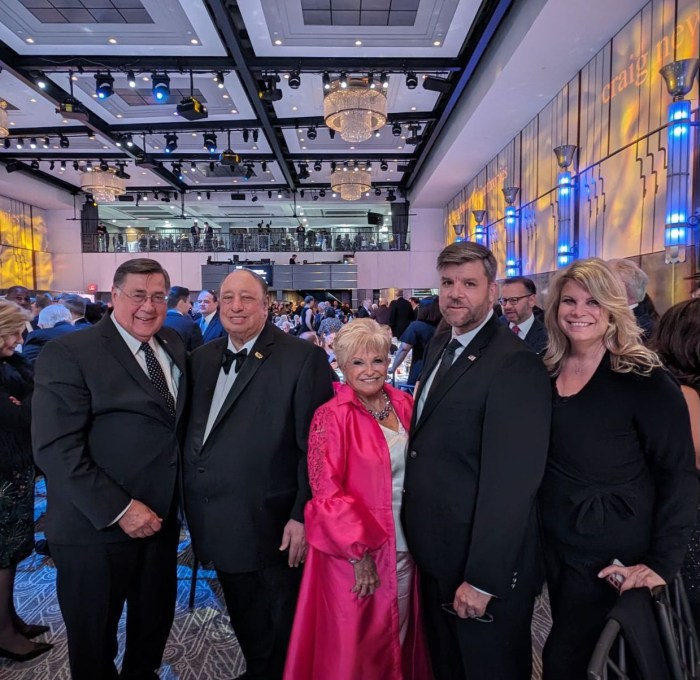New York City Public Advocate, Jumaane D. Williams on Wednesday welcomed Gov. Andrew Cuomo’s signing into law legislation that restores voting rights of formerly convicted felons on release from prison.
“While states across the country attempt to further restrict access to the ballot, New York is progressing, reversing its history of antiquated voting laws, thanks to years of dedicated work by advocates and affected communities,” said Williams.
“The state legislature passing this bill, and the Governor ultimately signing it, are crucial steps in that movement,” he added. “Automatically restoring voting rights to formerly incarcerated individuals will be enormously consequential for thousands of New Yorkers now able to more fully participate in and determine the direction of their communities.
“This law also aids in informing newly eligible people that their rights have been restored, educating and empowering would-be voters,” Williams continued.
But he said: “It’s not enough to catch up, however. We need to advance – to extend voting rights to incarcerated New Yorkers, as states like Vermont and Maine already have, and provide greater access to the ballot to people inside prisons and jails pretrial.
“While politicians across the country are engaged in a systematic effort to limit the voice and voting power of communities of more color, we must do all we can in New York to end a pattern of over-incarceration and underrepresentation,” the New York Public Advocate stressed.
The measure, which the state Legislature passed in mid-April, immediately restores voting rights when people are released from prison, even if they are on parole.
Before conviction and sentencing, criminal defendants are informed that they will lose their voting rights.
New York Democratic Assembly Member, Daniel O’Donnell, who sponsored the legislation in the State Assembly, said he was proud “that this legislation removes one more barrier to equal representation in our state.
“Studies show that when people on parole know that they deserve to participate in government, they feel more connected to the community and are more likely to reintegrate into society successfully,” said O’Donnell in a statement.
“Together, we have helped New York realize a principle that our segregation-era laws have sought to deny: every citizen has equal worth and deserves the right to vote,” he added.
The legislation restores voting rights to parolees, to facilitate community reintegration and participation in the civic process, rather
than requiring a parolee to wait until he or she has been discharged from parole or reached the maximum expiration date of the sentence.
Section one of the bill amends subdivision two of section 5-106 of the Election Law to restore voting rights to individuals who have been
released to community supervision from New York state sentences imposed as a result of New York felony convictions.
Election Law 5-106(2) bars a person convicted of a New York felony from voting or registering to vote, and also, as currently drafted, restores voting rights when the person is either discharged from parole or reaches the maximum expiration date of his or her sentence.
The legislation now restores voting rights while the person is serving the community supervision portion of the sentence, so that he or she can exercise the civic responsibility of voting.
In April, the State Senate passed legislation (S.261) sponsored by State Sen. Zellnor Y. Myrie (D-Central Brooklyn) to allow the New York State Department of Corrections and Community Supervision to consider higher education credit earned by an incarcerated New Yorker as grounds for “merit time” reductions in sentences.
The legislation would permit certain individuals to be considered for parole early based on this expanded definition of “merit time.”
“Today’s vote in the Senate underscores the growing awareness that our criminal legal system has, for too long, emphasized punishment instead of rehabilitation,” said Myrie, who represents the 20th Senatorial District.
“This bill creates an incentive for incarcerated New Yorkers to enroll in college-level programs, develop job skills and prepare for a successful re-entry,” he added. “I’m grateful to my colleagues for advancing this important step toward restorative justice, and to Assembly Member Harvey Epstein for sponsoring this bill in the Assembly.”
Currently, Myrie, whose grandmother hailed from Jamaica, said merit time allowances can be granted to incarcerated individuals who successfully participate in work and treatment programs assigned to them, along with those who earn a GED, complete vocational training or participate in approved community service.
He said the legislation expands the merit time criteria by including college-level credits as grounds for individuals who have been convicted of nonviolent offenses to demonstrate their rehabilitation.
“As a former class instructor in a maximum security prison, I know first-hand how valuable higher education inside a correctional facility can be,” Myrie said. “Incentivizing education while incarcerated not only benefits the individuals who receive that education – by reducing recidivism and increasing earning potential – it also benefits the families and communities to which they return.”
Myrie said individuals convicted of violent felonies, sex crimes and additional class A-I felony offenses – excluding criminal possession and sale of controlled substances – are not eligible for merit time allowances and would not be able to receive sentence reductions through this program.
This bill passed the State Assembly earlier this year (A.3078, Epstein), and now awaits Gov. Andrew Cuomo’s signature.


